This article includes a list of references, but its sources remain unclear because it has insufficient inline citations. (September 2016) (Learn how and when to remove this template message) |

Khudai Khidmatgar (Pashto: ????? ????????) literally translates as the servants of God, was a Pashtun non-violent movement against the British Empire by the people (also known as Pathans, Pakhtuns or Afghans) of the North-West Frontier Province of British India (now in Pakistan).
Also called Surkh Posh or "Red Shirts", this was originally a social reform organisation focusing on education and the elimination of blood feuds; it was known as the Anjuman-e-Islah-e Afghania (society for reformation of Afghans). The movement was led by Khan Abdul Ghaffar Khan, known locally as Bacha Khan or Badshah Khan.
It gradually became more political as its members were being targeted by the British Raj. By 1929 its leadership was exiled from the province and large numbers were arrested. Seeking allies, leaders approached the Muslim League and Indian National Congress; after being rebuffed by the former in 1929, the movement formally joined the Congress Party. Due to pressure across India, the British government finally released Bacha Khan and lifted restrictions on the movement. As part of the Government of India Act 1935, a limited male franchise was for the first time introduced in the North-West Frontier Province. In the subsequent election, Bacha Khan's brother Dr.Khan Sahib was elected as Chief Minister.
The Khudai Khidmatgar movement faced another crackdown for its role in the Quit India Movement after 1940; in that period it started facing increasing opposition from the Muslim League in the province. Its Congress affiliate won the 1946 election again.
The Khudai Khidmatgars strongly opposed the All-India Muslim League's demand for the partition of India. When the Indian National Congress declared its acceptance of the partition plan without consulting the Khudai Khidmatgar leaders, Bacha Khan, the leader of the Khudai Khidmatgars, felt very sad and told the Congress "you have thrown us to the wolves."
In June 1947, the Khudai Khidmatgars declared the Bannu Resolution, demanding that the Pashtuns be given a choice to have an independent state of Pashtunistan, composing all Pashtun territories of British India, instead of being made to join Pakistan. However, the British Raj refused to comply with the demand of this resolution. After the partition, the Khudai Khidmatgars faced a backlash from the new Pakistani government. The government of the Khudai Khidmatgars was dismissed and their movement banned.
Contents
Conditions prior to the movement
At the beginning of the 20th century Pashtun society was colonized, stagnant, violent, worn down by feuds, inequalities, factionalism, poor social cooperation, and plain ignorance. Education opportunities were strictly limited. Pashtuns are Muslims; and religious leaders and Mullahs were known to have told parents that if their children went to school, they would go to hell. Khan stated that “the real purpose of this propaganda” was to keep Pashtuns “illiterate and uneducated”, and hence his people “were the most backward in India” with regard to education. He also stated that by the time Islam reached his people centuries earlier, it had lost much of its original spiritual message.
Origins
Formed out of the Society for the Reformation of Pashtuns (Anjuman-e-Islah-e-Afghan), it initially targeted social reformation and launched campaigns against prostitution. Bacha Khan as its founder seemed to be influenced by the realisation that whenever British troops were faced with an armed uprising they eventually always overcame the rebellion. The same could not be said when using non violence against the troops.
The movement started prior to the Qissa Khwani bazaar massacre, when a demonstration of hundreds of non violent supporters were fired upon by British soldiers in Peshawar. Its low point and eventual dissipation was after Pakistan's independence in 1947, when the Muslim League Chief Minister Abdul Qayyum Khan banned the movement and launched a brutal crackdown on its members, which culminated in the Babra massacre. At its peak, the KK movement consisted of almost 100,000 members.
Genesis
Initially the movement focussed on social reform as a means of improving the status of Pashtuns against the British. Ghaffar Khan founded several reform movements prior to the formation of the Khudai Khidmatgar, the Anjumen-e Islah ul-Afghan in 1921, the farmers' organisation Anjuman-e Zamidaran in 1927 and the youth movement Pashtun Jirga in 1927. Trying to further spread awareness on Pashtun issues Abdul Ghaffar Khan founded the magazine Pakhtun in May 1928. Finally in March 1930, almost on the eve of the Qissa Khwani Bazaar Massacre the Khudai Khidmatgar were formed.
"The Red Shirts"
Khan drew his first recruits from the young men who had graduated from his schools. Trained and uniformed, they served behind their officers and filed out into various villages to seek recruits. They began by wearing a simple white overshirt, but the white was soon dirtied. A couple of men had their shirts dyed at the local tannery, and the brick-red colour proved a breakthrough, it was this distinctive colour that earned the Khudai khidmatgar movement activists the name "the Red shirts" or surkh posh. Other reason for the choice of red color was a symbolic adherence of the anti colonial movements to the revolutionary and socialist discourse.
Structure
Volunteers who took the oath formed platoons with commanding officers and learned basic army discipline. The volunteers had their own flags: red in the beginning, later tri-colour and bands: bagpipe and drums. The men wore red uniforms and the women black. They had drills, badges, a flag, the entire military hierarchy of rank and even a bagpipe corps.
Khan set up a network of committees called jirgas, named and modelled after the traditional tribal councils. Villages were grouped into larger groups, responsible to district-wide committees. The Provincial Jirgah was the ultimate authority.
Officers in the ranks were not elected, since Khan wanted to avoid infighting. He appointed a salar-e-azam or commander-in-chief, who in turn appointed officers to serve under him. Other ranks included Jarnails (Generals). The army was completely voluntary; even the officers gave their services free. Women were recruited too, and played an important role in the struggles to come.
Volunteers went to the villages and opened schools, helped on work projects, and maintained order at public gatherings. From time to time they drilled in work camps and took long military-style marches into the hills.
Ideology
Under the influence of Abdul Ghaffar Khan the movement advocated non-violent protests and justified their actions through an Islamic context. Khan did not find Islam and non-violence as incompatible. Despite that the movement was intrinsically non-sectarian. In more than one occasion when Hindus and Sikhs were attacked in Peshawar, Khidmatgar members helped protect their lives and property.
“The Holy Prophet Mohammed came into this world and taught us ‘That man is a Muslim who never hurts anyone by word or deed, but who works for the benefit and happiness of God's creatures.’ Belief in God is to love one's fellow men.” – Khan Abdul Ghaffar Khan
“There is nothing surprising in a Muslim or a Pathan like me subscribing to the creed of nonviolence. It is not a new creed. It was followed fourteen hundred years ago by the Prophet all the time he was in Mecca.” – Khan Abdul Ghaffar Khan
Pledge of the Khudai Khidmatgar
- Example 1
- In the name of God who is Present and Evident, I am a Khudai Khitmatgar.
- I will serve the nation without any self-interest.
- I will not take revenge (badla) and my actions will not be a burden for anyone.
- My actions will be non-violent.
- I will make every sacrifice required of me to stay on this path.
- I will serve people without regard to their religion or faith.
- I shall use nation-made goods.
- I shall not be tempted by any office.
- Example 2
In the presence of God I solemnly affirm that:
The Oath of the Khudai Khidmatgar
- I am a Servant of God, and as God needs no service, serving His creation is serving Him,
- I promise to serve humanity in the name of God.
- I promise to refrain from violence and from taking revenge.
- I promise to forgive those who oppress me or treat me with cruelty.
- I promise to refrain from taking part in feuds and quarrels and from creating enmity.
- I promise to treat every Pasthun as my brother and friend.
- I promise to refrain from antisocial customs and practices.
- I promise to live a simple life, to practice virtue, and to refrain from evil.
- I promise to practice good manners and good behavior and not to lead a life of idleness.
- I promise to devote at least two hours a day to social work.
- I put forth my name in honesty and truthfulness to become a true Servant of God.
- I will sacrifice my wealth, life, and comfort for the liberty of my nation and people.
- I will never be a party to factions, hatred, or jealousies with my people; and will side with the oppressed against the oppressor.
- I will not become a member of any other rival organization, nor will I stand in an army.
- I will faithfully obey all legitimate orders of all my officers all the time.
- I will live in accordance with the principles of nonviolence.
- I will serve all God's creatures alike; and my object shall be the attainment of the freedom of my country and my religion.
- I will always see to it that I do what is right and good.
- I will never desire any reward whatever for my service.
- All my efforts shall be to please God, and not for any show or gain.
Anthem of Khudai Khidmatgar
We are the army of God
By death or wealth unmoved,
We march, our leader and we,
Ready to die!
In the name of God, we march
And in his name, We die
We serve in the name of God
God's servant are we!
God is our king,
And great is he,
We serve our Lord,
His slaves are we!
Our country's cause
We serve with our breath,
For such an end,
Glorious is death
We serve and we love
Our people and our cause
Freedom is our aim,
And our lives are its price.
We love our country
And respect our country
Zealously we protect it
For the glory of God
By cannon or gun undismayed
Soldiers and horsemen,
None can come between,
Our work and our duty.
British Raj tactics against the Khudai Khidmatgar
British troops employed a wide variety of tactics against KK activists.
"The British used to torture us, throw us into ponds in wintertime, shave our beards, but even then Badshah Khan told his followers not to lose patience. He said 'there is an answer to violence, which is more violence. But nothing can conquer nonviolence. You cannot kill it. It keeps standing up. The British sent their horses and cars to run over us, but I took my shawl in my mouth to keep from screaming. We were human beings, but we should not cry or express in any way that we were injured or weak." – Musharraf Din (Baldauf).
Another tactic employed against non-violent protesters who were blocking roads was to charge them with cars and horses.
In 1930, soldiers of the Garhwal Rifles refused to fire on non-violent protests led by Khudai Khidmatgars in Peshawar. By disobeying direct orders, the regiment sent a clear message to London that loyalty of India's armed forces could not be taken for granted to enact harsh measures. However, by 1931, 5,000 members of the Khudai Khidmatgar and 2,000 members of the Congress Party were arrested. This was followed by the shooting of unarmed protestors in Utmanzai and the Takkar Massacre followed by the Hathikhel massacre.
In 1932, the Khudai Khidmatgar movement changed its tactics and involved women in the movement. This unnerved many Indian officers working in the region as in those days of conservative India it was considered a grave insult to attack women, more so in a conservative Pashtun society. However the brutality increased and in one case five police officers in Benares had to be suspended due to "horrific reports about violence used against young female volunteers".
The British bombed a village in the Bajaur Valley in March 1932 and arrested Abdul Ghaffar Khan as well as more than 4,000 Khudai Khitmatgars. The British bombardments in the border area continued up till 1936–1937 because, “India is a training field for active military training which can be found nowhere else in the Empire", a British court concluded in 1933.
Other alleged tactics ranged from poisoning to the use of castrations against some Khudai Khidmatgar activists.
After the anti-war resignation of Dr. Khan's Ministry in 1939 because of the events of World War 2, British tactics towards the movement changed to employ divide-and-rule tactics through the instigation of sectarian and communal tensions over brute force. Governor George Cunningham's policy note of 23 September 1942, called for the government to ‘continuously preach the danger to Muslims of connivance with the revolutionary Hindu body. Most tribesmen seem to respond to this’, while in another paper he commented about the period 1939–1943: ‘Our propaganda since the beginning of the war had been most successful. It had played throughout on the Islamic theme.’
Watch movie Khudai Khidmatgar online on Amazon
Watch movie Khudai Khidmatgar online
Watch The Movie On PrimeLucky: No Time For Love Full HD Movie Download

Annamalai Full HD Movie Download
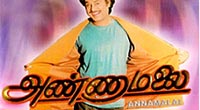
Intezar Full HD Movie Download
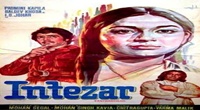
Half Ticket Full HD Movie Download
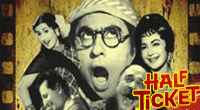
Dariya Dil Full HD Movie Download
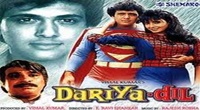
Geet (1992) Full HD Movie Download
.jpg)
Asha Jyoti Full HD Movie Download
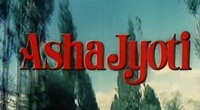
Jaanbaaz (1986) Full HD Movie Download
.jpg)
Rajkumar Full HD Movie Download
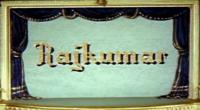
Nehiya Lagawani Saiyan Se Full HD Movie Download
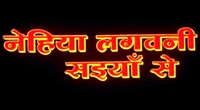
Eradane Maduve Full HD Movie Download

Saajan (1969) Full HD Movie Download
.jpg)
Alludugaru Full HD Movie Download
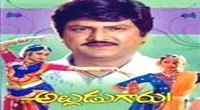
Veerta The Power Full HD Movie Download
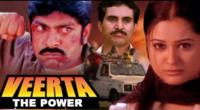
Mahakali Ka Insaaf Full HD Movie Download

Donga Mogudu Full HD Movie Download
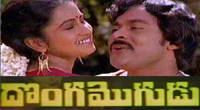
Alludu Kosam Full HD Movie Download
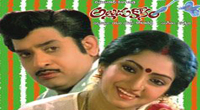
Dukanam Full HD Movie Download
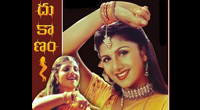
Tenali Ram Krishna Full HD Movie Download
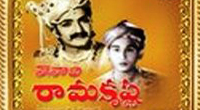
The Mountain Of The Cannibal God (Telugu) Full HD Movie Download
.jpg)
Geetanjali Full HD Movie Download

Download latest Movie from bollywood
- 1> baaghi 3
- 2> THE SKY IS PINK MOVIE FULL STORY AND REVIEW
- 3> Luka Chuppi
- 4> TO ALL THE BOYS I’VE LOVED BEFORE
- 5> Kabir Singh
- 6> Street Dancer 3D
- 7> Simmba
- 8> Gone Girl
- 9> The Girl Who Lived
- 10> Ludo
- 11> DILWALE DULHANIA LE JAYENGE
- 12> GUILTY
- 13> The Godfather
- 14> Adventures of Rusty
- 15> Sooryavanshi
- 16> Satyameva Jayate 2
- 17> Thappad
- 18> Bhool Bhulaiyaa 2
- 19> KGFChapter 2
- 20> Mardaani 2
- 21> Pinjar
- 22> Shivaji maharaj
- 23> Ek Villian 2
- 24> Hungama 2
- 25> Divergent
- 26> Mumbai Saga
- 27> The Internship
- 28> HIT (telugu)
- 29> Panga
- 30> The perfect date
- 31> 16 December
- 32> Gopala Gopala (Telugu)
- 33> Brahmastra
- 34> Gangubai Kathiawadi
- 35> Manmadhudu
- 36> Nenu local
- 37> Mahanati
- 38> Shatamanam bavathi
- 39> Lagaan
- 40> After
- 41> MOM
- 42> Shamshera
- 43> Raguvaran BTech
- 44> Khakee
- 45> The villain
- 46> OM
- 47> Mr. perfect
- 48> Bueatifull mind
- 49> Hichki
- 50> Gabbar Singh
- 51> Jogi
- 52> Before Sunrise
- 53> Before Sunset
- 54> Before Midnight
- 55> The Big Bull
- 56> Top Gun: Maverick
- 57> The Purge
- 58> The Sky is Pink
- 59> Laxmmi Bomb
- 60> Sadak 2
- 61> Sufna
- 62> Prithviraj
- 63> PK
- 64> Coolie No 1(2020)
- 65> Black Widow
- 66> Dear Zindagi
- 67> Dil Bechara
- 68> PHIR HERA PHERI
- 69> WAR
- 70> Dostana
- 71> RRR: Roudram Ranam Rudhiram
- 72> Maidan
- 73> Dabbang 3
- 74> Chhalaang
- 75> life as we know it
- 76> SherShaah
- 77> Sandeep Aur Pinky Faraar
- 78> Event Horizon
- 79> 83
- 80> Radhe: Your Most Wanted Bhai
- 81> Gunjan Saxena: The Kargil Girl
- 82> Mr India
- 83> Vivah
- 84> Anokha Bandhan
- 85> Ghost
- 86> Bhoot: Part One - The Haunted Ship
- 87> Haseen Dilruba
- 88> Laal Singh Chaddha
- 89> Qismat
- 90> Rajput
- 91> Drive
- 92> Dil Chahta Hai
- 93> Dil Ki Baazi
- 94> Dil Ka Rishta
- 95> Teesri Manzil
- 96> Dil
- 97> Love Aaj Kal
- 98> Khaali Peeli
- 99> Bunty Aur Babli 2
- 100> Atrangi Re
- 101> Gulabo Sitabo
- 102> Jodi
- 103> Suraj Pe Mangal Bhari
- 104> Deewana
- 105> Attack
- 106> Sardar Udham Singh
- 107> Toofan
- 108> THE LOVEBIRDS
- 109> Jersey
- 110> Ginny Weds Sunny
- 111> Thalaivi
- 112> Shiddat
- 113> Angels vs Zombies
- 114> Koi Mil Gya
- 115> Thank God
- 116> Bhuj: The Pride of India
- 117> Hum Aapke Hain Kaun
- 118> The Platform
- 119> Bird Box
- 120> Roohi Afzana
- 121> Torbaaz
- 122> Nikamma
- 123> World War Z
- 124> Extraction
- 125> Train to Busan
- 126> Life of Pi
- 127> SHAADI MEIN JROOR AANA
- 128> Himmat Aur Mehnat
- 129> To All The Boys: P.S. I Still Love You
- 130> Mimi
- 131> Good Newwz
- 132> Shubh Mangal Zyada Saavdhan
- 133> Raabta
- 134> Harry Potter and the Philosopher's Stone
- 135> Harry Potter and the Chamber of Secrets
- 136> Chhapaak
- 137> War of the Worlds
- 138> Harry Potter and the Prisoner of Azkaban
- 139> Harry Potter and the Goblet of Fire
- 140> MURDER MYSTERY
- 141> Shakuntala Devi
- 142> Bachchan Pandey
- 143> Jayeshbhai Jordar
- 144> Sheer Qorma
- 145> Saina
- 146> 'O' Pushpa I hate tears
- 147> Kedarnath
- 148> MS Dhoni The Untold Story
- 149> Chhichhore
- 150> Badhaai Ho
- 151> Unstoppable
- 152> Oz the Great And Powerful
- 153> The Girl on the Train
- 154> Haathi Mere Saathi 2020
- 155> The Conjuring: The Devil Made Me Do It
- 156> Gandhi Se Pehle Gandhi
- 157> The Song of Scorpions
- 158> Srimanthudu
- 159> Hello Guru Prema Kosame
- 160> Beauty and The Beast
- 161> Black Panther
- 162> Charlie and the Chocolate Factory
- 163> Bole Chudiyan
- 164> Fidaa
- 165> Duvvada Jagannadham
- 166> Bruce Lee: The Fighter
- 167> Hyper
- 168> Yaara
- 169> Red (2020)
- 170> Shivam
- 171> That Is Mahalakshmi
- 172> Nishabdham
- 173> Aashram 2020 web series
- 174> Laxmii
- 175> Mismatched
- 176> STUDENT OF THE YEAR 2
- 177> NAIL POLISH
- 178> Ramprasad Ki Tehrvi
- 179> KAAGAZ
- 180> 12 o Clock
- 181> The Power
- 182> bolo hau
- 183> Tribhanga
- 184> JAMUN
- 185> Madam Chief Minister
- 186> Maasaab
- 187> Aadhaar
- 188> Tanhaji
- 189> Bhaagi 3
- 190> Bhootnath
- 191> MALANG
- 192> Jai Mummy Di
- 193> Haathi Mere Saathi 2021
- 194> Shakeela
- 195> Unpaused
- 196> Annayya
- 197> Vamsoddharakudu
- 198> Mrugaraju
- 199> Narasimha Naidu
- 200> Sankranti
- 201> Manasu Maata Vinadhu
- 202> Anjaane
- 203> Apaharan
- 204> Bachke Rehna Re Baba
- 205> Bewafaa
- 206> Roohi
- 207> Radhe
- 208> Zindagi Khoobsoorat Hai
- 209> Yeh Mohabbat Hai
- 210> Yeh Kya Ho Raha Hai?
- 211> The Tomorrow War
- 212> DehradunDiary
- 213> Meri Shaadi Karaoo
- 214> Matruu Ki Bijlee Ka Mandola
- 215> No One Killed Jesica
- 216> Aag Ka Goola
- 217> Eight Million Dollars
- 218> Three Hundred
- 219> Cats and Dog
- 220> Decoy
- 221> Gold Rush
- 222> You Have Got Mail
- 223> Final Destination three
- 224> Tofan
- 225> Jungle
